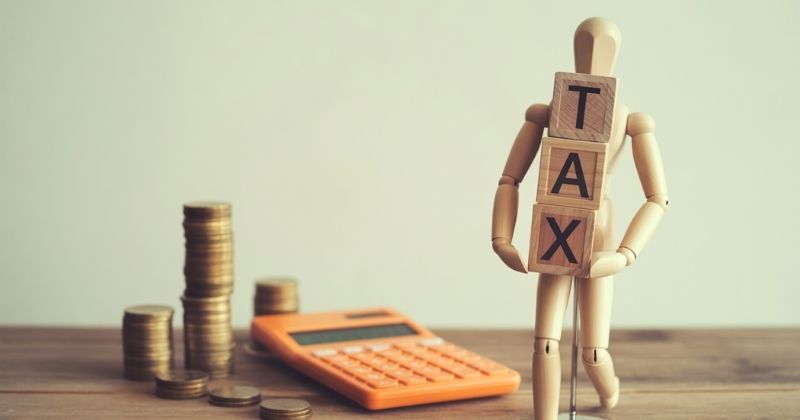
Prominent economist Dawie Roodt has encouraged South Africans to legally minimise the amount of tax they pay, advising citizens to use every available mechanism provided under current legislation in order to retain more of their income. His comments were shared during a question-and-answer session at the Biznews Conference recently held in Hermanus
Key Takeaways
- Legal tax minimisation is encouraged: Dawie Roodt and tax experts emphasise that South Africans should use every lawful tool, loophole, and deduction available to reduce their tax burden.
- Multiple strategies exist to cut tax: Options include tax-free savings accounts, retirement fund contributions, registered charity donations, home office deductions, and medical aid credits.
- South Africans are heavily taxed: With a narrow tax base and high tax-to-GDP ratio, individuals and businesses face significant pressure, making smart financial planning essential.
About Arcadia Finance
Get your loan approved quickly with Arcadia Finance. Compare offers from 19 trusted lenders at no cost, all fully registered with the National Credit Regulator, and enjoy a simple, reliable process designed for your needs.
Dawie Roodt Urges South Africans to Minimise Tax Within the Law
He explained to attendees that technological advancements, including the rise of digital assets such as Bitcoin, have significantly transformed the way the financial world operates today. These changes have undermined the effectiveness of older systems, such as foreign exchange controls, which previously restricted the movement of money across borders. Now, cryptocurrencies enable people to transfer funds internationally with relative ease.
Roodt attempted to reassure South Africans by stressing his confidence that the difficulties facing the country would ultimately be resolved, and that citizens themselves would play an essential role in steering the nation back onto a stronger path.
Despite this positive outlook, he also made it clear that the current government is still guilty of spending recklessly and that this continued overspending is a major factor weighing down the economy. In his view, South Africans could respond by deliberately reducing the amount of tax they pay within the boundaries of the law, thereby depriving the state of excessive revenue and discouraging wasteful expenditure.
He has previously emphasised that he does not advocate for lawbreaking, but rather for individuals to take advantage of every possible loophole and benefit that the tax system legally permits. According to him, money retained by citizens holds far greater value when spent or invested in the private sector than when it is funnelled into the state and managed by government officials.
Roodt has also warned against any kind of outright tax revolt, cautioning that stopping payment of taxes altogether, including municipal levies, would have devastating consequences for the country. Once people discontinue paying, it becomes very difficult to restore compliance, even under new political leadership.
The economist further highlighted that South Africans are already heavily taxed, leaving the government with no scope to increase taxes any further. He pointed out that the nation’s tax base is extremely narrow, with a small proportion of individuals and companies contributing the vast majority of both personal and corporate income taxes.
According to the South African Revenue Service’s (SARS’s) own data, just over 4 million individual taxpayers fund nearly 60% of personal income tax, out of a population of more than 60 million. This means a small group is carrying an enormous fiscal responsibility.

Practical Ways to Legally Reduce Your Tax Burden
Financial experts Nicci Courtney-Clark, head of Tax at TaxTim, and Bronwen Trower, co-portfolio manager at Investec Wealth & Investments, have outlined a range of strategies that South Africans can use to lower their tax exposure.

Use a Tax-Free Savings Account (TFSA)
One of the simplest methods is to make use of a tax-free savings account (TFSA). These accounts allow individuals to save and invest without paying tax on the returns. Current legislation permits deposits of up to R36,000 per year, with a total lifetime contribution cap of R500,000. If the annual maximum is deposited consistently, it will take approximately 14 years to reach the lifetime threshold.
Tip: Start a TFSA as early as possible in life, even with small contributions, since compounding interest over years can result in far larger tax-free returns by the time retirement comes around.

Boost Retirement Savings
Another important option is retirement savings, which offer tax advantages different from those of tax-free savings accounts. Contributions to retirement funds of up to 27.5% of an individual’s annual income, capped at R350,000, can be deducted from taxable income, effectively reducing the immediate tax burden. However, withdrawals from these accounts during retirement will be taxed at that stage.

Donate to Public Benefit Organisations (PBOs)
Donations to registered charities can also be an effective way of reducing tax while simultaneously supporting good causes. For these contributions to qualify for deductions, the organisation must be recognised by SARS as a Public Benefit Organisation (PBO). Such entities operate on a non-profit basis and are exempt from paying tax themselves.
Tip: Always request a Section 18A certificate from the charity. Without this proof, SARS will not accept the donation as deductible. Many taxpayers forget this step and lose out on valuable tax savings.

Claim Work-from-Home Expenses
Courtney-Clark has explained that claiming expenses for working from home is another potential avenue to reduce tax liabilities, although this area is particularly complex. To qualify, the taxpayer must spend more than half of their working hours at home and must have a specific space in the house set aside exclusively for work purposes. A letter from the employer confirming the percentage of time spent working from home is also required, as SARS relies on this documentation to validate the claim.

Maximise Medical Aid Contributions
Medical aid contributions present another opportunity for relief, as taxpayers receive a fixed credit against their tax liability based on the number of dependents included in their medical aid scheme. Furthermore, individuals who incur significant out-of-pocket medical expenses, such as costs for prescribed medicines or consultation fees, may be eligible for an additional medical tax credit. These additional credits, however, are only applied if the expenses are deemed substantial, with SARS using a specific formula linked to taxable income to determine eligibility.

Balancing Compliance with Financial Advantage
The message conveyed by both Roodt and the tax specialists is that South Africans must strike a balance between fulfilling their legal obligations and maximising the opportunities available to them within the tax framework. By making strategic use of tax-free accounts, retirement contributions, charitable donations, home office deductions, and medical credits, citizens can lawfully reduce their tax bills while keeping their finances healthy.
Roodt’s perspective adds a broader political and economic dimension, highlighting that legal tax minimisation is not only a matter of personal financial planning but also a way for citizens to resist government overspending. Together, these insights underline that careful financial planning and strict adherence to legal boundaries are key for South Africans looking to retain as much of their hard-earned money as possible.
Conclusion
South Africans face one of the heaviest tax burdens among emerging economies, but by making smart use of tax-free savings accounts, retirement contributions, medical credits, donations, and other legitimate deductions, individuals can significantly reduce what they owe while still staying compliant with the law. Economists like Dawie Roodt argue that this approach not only protects personal wealth but also sends a message to government about wasteful spending, reinforcing the importance of financial literacy and proactive planning. Ultimately, the goal is not to avoid responsibility, but to ensure that citizens maximise the value of their money and make better financial choices within the framework of South Africa’s tax laws.
Fast, uncomplicated, and trustworthy loan comparisons
At Arcadia Finance, you can compare loan offers from multiple lenders with no obligation and free of charge. Get a clear overview of your options and choose the best deal for you.
Fill out our form today to easily compare interest rates from 19 banks and find the right loan for you.

